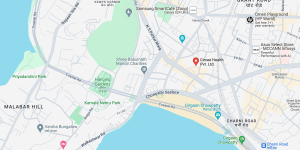I remember vividly, in my second year of residency, the first month working on the oncology ward. Invasive fungal infections like Mucor, and other ‘opportunistic’ infections, are no stranger to docs that take care of these patients daily. It is a well known complication of chemotherapy (“chemo”) – that is – medications that purposely suppress the rapid-growing cancer cells. It’s important to know that in addition to killing the cancer cells, chemo also kills off other rapidly growing cells – including the body’s natural defence – the ‘good’ bacteria, the antibodies and anti-viral compound producing white blood cells. In fact, we would watch a patient’s white blood cell count very carefully, and as soon as it dipped below a critical threshold- they were placed on antifungal prophylaxis (antifungal medications to prevent infection).
Unfortunately, some of the more powerful moulds were able to break through, and we’d have to step up the therapy to stronger medications. You may have heard of Amphotericin B- the most effective treatment for mucormycosis and most of these other dangerous infections. In medicine, we call this drug by an ominous pet name of “Ampho-terrible”. Why? Yes, it kills off the fungus, but it also wreaks havoc on multiple organ systems- particularly the kidneys, gastrointestinal tract and cardiovascular system. Quite often, we’d lose patients not to the infection itself, but to the side effects from treatment.

Why do I bring up these particular side effects- just to scare you? Actually, yes! To scare you and inform you. It is very important to understand that although many anti-infection medications are effective, they can have negative aspects as well. Someone may think, “I’m not afraid of black mould- there is an effective treatment!”. The problem is, that treatment can ultimately be more harmful than good, especially long term. Your infection will clear up, but you may end up stuck to a hemodialysis machine (what we use for patients in end-stage kidney failure). Another concern is that of antifungal resistance- similar to antibiotic resistance, which you may have heard of.
Too much use of a particular anti-infective, will allow some bugs to escape the medication and eventually become immune, or resistant to it. These super-bugs (bacteria, fungi, moulds and of course viruses) are what us doctors and medical researchers are afraid of the most! So, how can mucormycosis and similar opportunistic infections be prevented from taking up residence in the body and causing serious illness? The most obvious step is prevention- keeping a healthy active immune system will ensure that you steer clear of these bugs. In some cases, as I mentioned earlier, suppressing the immune system is unavoidable (cancer, HIV, etc).
But there are other cases where choices in treatment are available, and the decision needs to be made keeping these risks in mind! I am referring, in this case, to COVID-19 treatment. One of the mainstays over the past few months (as the treatment is, of course, evolving), has been steroid treatment. The thought behind is that steroids will suppress the body’s overzealous immune response to the virus, and thus improve the patient’s condition. However, when considering steroids, it is extremely important to know when (and if!) to use them. As with antibiotic overuse, it is dangerous to just prescribe steroids to every single COVID positive patient.
The course of the disease is now fairly well known, and this should guide the treatment parameters. The first few days (usually day 1-6) are when the virus is replicating (increasing in number) in the body and causing fever, body aches, fatigue, etc. The following week, in some cases, is when the body will try to kill the virus, but often overdoes it, and something called a “cytokine storm” could occur. This phenomenon is what is particularly dangerous about COVID-19 and often what causes hypoxia (low oxygen in the blood), low blood pressure, worsening fever, and multi-organ damage. The second phase of infection is when systemic [oral] steroids should be given. Low oxygen or a sudden change in ‘vital signs’ (BP, pulse, higher fever, decreased urination) should key the doctor to prescribe steroids. Any other use is premature or unnecessary, and can lead to secondary complications- not only mucor, but development or worsening of diabetes, significant weight gain, hallucinations, weak bones, the list goes on. Just to summarize- steroids are an excellent medication, if used judiciously and in the appropriate situation. In fact, they can be absolutely instrumental in changing the course of illness, especially in COVID-19!
However, one needs to keep the experts’ research and latest clinical studies in mind when prescribing and/or buying for themselves at the local chemist. It is absolutely understandable to want to reach for any treatment possible when the fear of the pandemic looms overhead. But, if you remember one point from this article- please keep in mind that over-medication can be just as dangerous as the infection itself. Certainly, this can be kept in mind for all medications going forward. Let this be a lesson to us all- evidence based medicine and proven treatment protocols save lives!
As reported in the following news outlets (click to visit):












